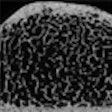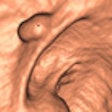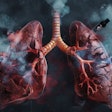More in Home
Hospital doctor gets struck off for fraud
September 10, 2024
Serac highlights first patient imaged with SPECT agent
September 10, 2024
Vaping no better than smoking, especially in youngsters
September 10, 2024
MRI model predicts therapy response in breast cancer
September 9, 2024
Embolization can mitigate enlarged prostate symptoms
September 9, 2024
Nori: Lack of awareness remains major issue in CEM
September 6, 2024
DeepHealth partners with HOPPR on foundational AI model
September 5, 2024
EANM announces training initiatives
September 5, 2024
ESC 2024 attendance reaches pre-COVID-19 levels
September 5, 2024
100 Rules of Radiology proves an indispensable guide
September 5, 2024
Radiologists in Turkey reflect on 2023 earthquakes
September 4, 2024
RaySearch announces practice milestone with Iridium Network
September 4, 2024






















